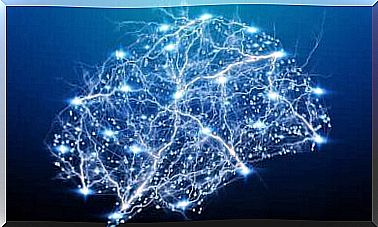The Link Between Your Self-image And Depression

Your self-image and your depression are closely linked. Depression or other mental illness fragments the image you have of yourself, which can lead to low self-esteem.
Your mind never stops investing time and energy in your self-image, weakening it even more with constant worry and negative internal dialogue.
Few clinical conditions are as complex as depression. No patient experiences depression in the same way. It is without a doubt a multifactorial, adverse and multifaceted condition.
However, there are common factors that manifest themselves in most clinical cases and that make it possible to recognize depression. It is a known enemy that uses your thoughts and mental behavior against you.
A recent study shows that self-esteem is an important part of these types of psychological disorders. The way you perceive yourself, talk to yourself and treat yourself changes the structure of your brain.
For example, MRI scans show that people with low self-esteem actually have less gray matter in different areas of their brains. Not only that, but if you are unable to improve your self-image and self-esteem, your depression can become more resistant and last for years. Let’s dig deeper into this issue.

Self-Image and Depression: Building Your Prison of Suffering
When a person is depressed, he does not live in the same reality as the people around him. That’s because depression is primarily an insulating force. It detaches people from their surroundings and gradually turns them inwards. They get stuck in their busy minds, exhausted and tormented.
This is the first important point to consider. When you’re depressed, parts of your brain that deal with self-awareness, reflection, and self-esteem are hyperactive.
Your self-esteem and depression are intimately linked by the thought patterns that attack your identity. Your own self-criticism makes you weak and you force yourself to focus on the past. Mistakes you’ve made, pain and loss, suffering, and so on – all of this is relived.
Stress is the road to depression and talking negatively about yourself
The University of Calgary in Canada recently published a study by Dr. Dencel Kopala. His research sheds light on how negatively talking about yourself contributes to the development of depression. It is also important to know that your self-image tends to weaken, especially during periods of increased stress.
If you don’t address these tensions and problems, your mind will become accustomed to stimulating a negative thinking pattern. As a result, it becomes increasingly difficult to feel optimistic, hopeful and good about yourself.
Before you know it, your self-image has hit rock bottom. Perhaps the most interesting thing about all of this is that it causes physical changes in certain areas of your brain.

Low self-esteem and gray matter in your brain
A 2014 study by Dr. Johannes Klakl of the University of Salzburg provided some fascinating findings about the self-image and the brain. The research showed that people with negative self-esteem actually have less gray matter. That means they are also more vulnerable to depression.
Thus, these patients had difficulty controlling their emotions. Also, it was difficult for them to plan and make creative and solid decisions to overcome their depression and suffering.
The importance of self-talk
Your self-esteem and depression can support each other, so much so that a negative self-image and a stressful situation can directly lead to major depressive disorder. This can put you in a vicious circle, because the depression itself tends to affect your already flawed self-image.
On the other hand, most therapists agree that the way you talk to yourself is the key to recovery. That is, the way you talk to, describe and perceive yourself strengthens or weakens your psychological health.
You deserve to feel good about yourself and feel worthy. That is why it is crucial that you are aware of your self-talk to strengthen your sense of yourself and prevent depression.
A healthy (and exciting) connection with your environment
Get out of your head and connect with the here and now. The idea is to break the cycle of negative thought patterns. One way to do that is to reconnect with what’s around you.
Look for new experiences and sensations that stimulate your curiosity and excitement. Offer your brain something else instead of fear and negativity.

A compassionate internal dialogue
Your self-image and your depression are linked because your self-talk weakens your self-esteem. It can open a black hole of depression. You have to learn how to talk to yourself in a respectful way. Your internal dialogue should always be friendly, compassionate and resilient.
If you don’t treat yourself the way you deserve to be treated, no one will. Self-love and a healthy sense of self are therefore the best defense mechanisms against most mood disorders. Work on this and never hesitate to ask for professional help if you need it.









